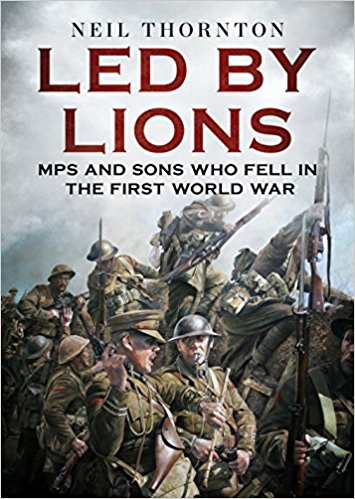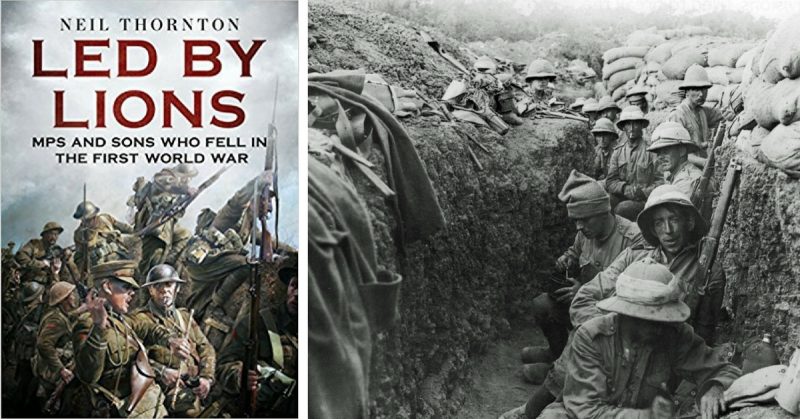Politicians aren’t exactly the flavour of the month in these parts and I doubt it’s much different wherever you are reading this. I won’t get mired in names but the current bunch just don’t appeal to me at all and seem to lack any form of merit. Voting is a chore when it should mean so much more given the struggle of so many to even enjoy the franchise. It is what it is.
Cast your thoughts back a century and there were just as many chancers and lightweights filling the British Parliament, but among them were some men who saw it as their duty to join the fight against the Kaiser and his chums and twenty-two of them would pay the ultimate price for their example. What these men were like as politicians doesn’t interest me one iota, but the fact they were prepared to put their necks on the block gives me something to respect about them.
In addition to Members of Parliament, this book also looks at the eighty-seven sons of MPs who died in the war, several of whom were brothers. This book underlines the reality of the Great War where people from all walks of life from royalty to the most humble paid the price and it’s title tips a careful nod to the old chestnut about lions and donkeys in a way that doesn’t stretch the point too much.
I could sit here and reel off a long and boring list of names and steal bits of the author’s research, but I’m not sure what that would achieve other than padding. It is an invidious business so I will confine myself to thinking of the union activist Will Thorne, whose private soldier son paid the price like so many of the officer class recorded in the book. A short lived prime minister, Andrew Bonar Law, lost two sons in the war not long after his wife passed away. Life is so cruel. The man himself didn’t make particularly old bones.
The thing about these men, the MPs and their sons; is they cross the spectrum of ideals and nationalities within the British Isles of the day. Conservatives, Liberals, socialists, Irish nationalists and Ulster Loyalists are all included. I’ve visited the grave of William Redmond, a man who hoped serving the cause would lead to home rule for Ireland but he was on a hiding to nothing. Other people would seek a more direct approach to achieve their aims. The British prime minister at the start of the conflict was Herbert Asquith who had the sad memory of a brief meeting with his son Raymond before he was killed on the Somme. Raymond’s grave at Guillemont is close to other privileged men who fell and he, again, confirms the reality that rank and birth were no guarantees of dodging a violent death.
This is a useful book. Compendiums like this always come in handy when doing research and they do a neat job of keeping specific elements together. Like recent titles on rugby players and cricketers they are chapters of a much bigger story that benefits from these parcels of knowledge breaking up an otherwise immensely confusing picture.
We might consider a book like this to be a little on the niche side of things, but it fits in well with standard narratives and the coffee table stuff I tend to admire. While it doesn’t do much to change my opinion of politicians in general, it does show that one or two of them had the right stuff whether it be through their own sacrifice or the bitter acceptance of the loss of their sons. The book ends with a brief look at officers of the Houses of Parliament who died in the war and they deserve our respect, too. The pressure to do their bit for King and Country or whatever they believed in was bound to take its toll. Neil Thornton confirms this with a solid piece of work. Good stuff.
Reviewed by Mark Barnes for War History Online

LED BY LIONS
MPs and Sons Who Fell in the First World War
By Neil Thornton
Fonthill
ISBN: 978 1 78155 666 5
